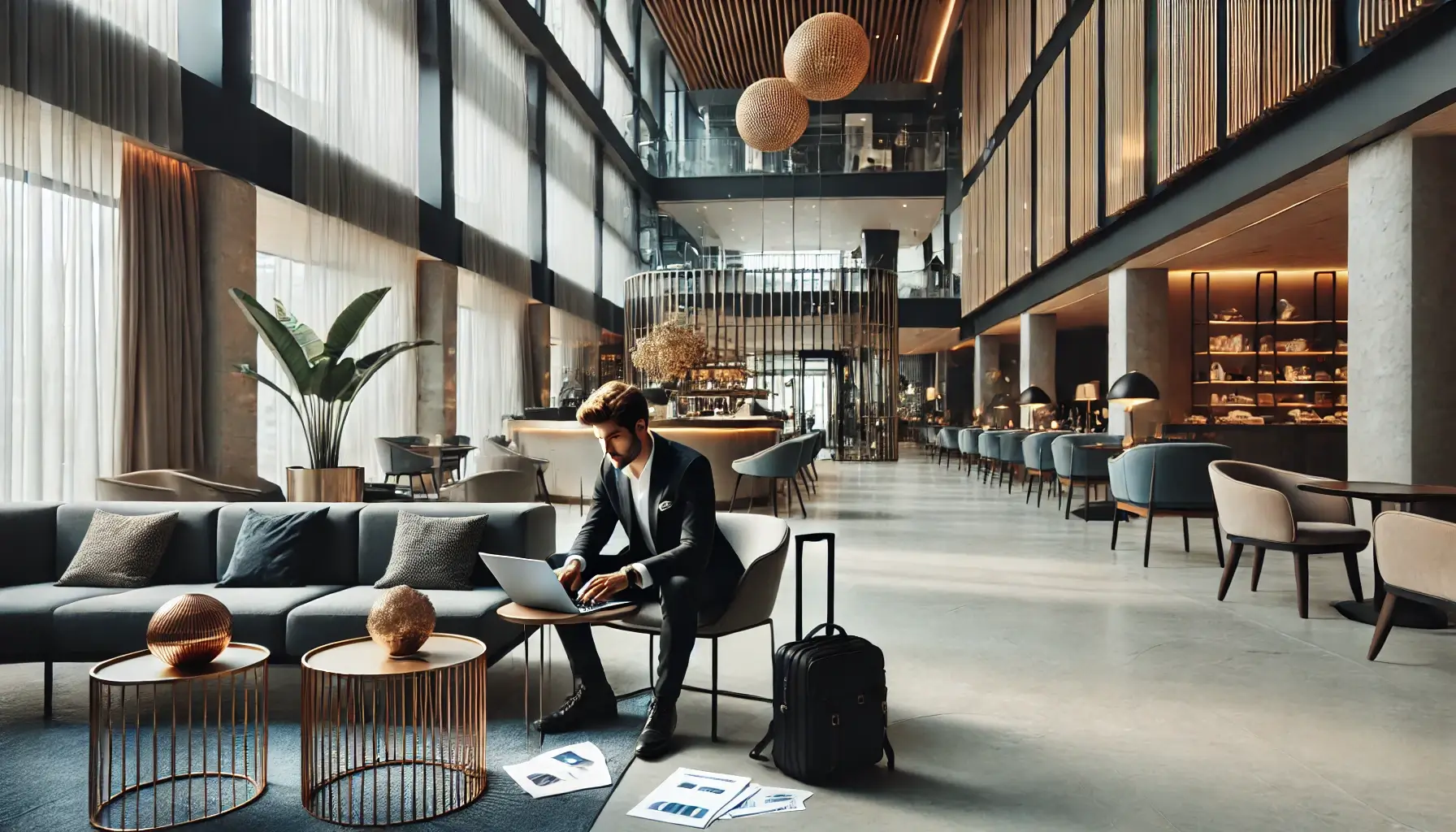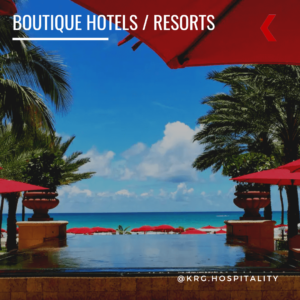Maximizing a Hotel’s Off-Season
by Doug Radkey

Note: AI-generated image.
Nearly every hotel experiences an off-season during the calendar year, a period of time when they can see occupancy rates drop by as much as 30 percent.
But when did it become normalized to sit back and view this significant dip as acceptable?
With the right strategies, these periods can become opportunities for growth. Or in the very least, reduce the occupancy drop to five or ten percent.
What would that difference do to your annual outcome?
Forecast Your Off-Season
Hotel operators, independent and chain, should be mindful of the off-season, forecast demand effectively, and leverage local opportunities. This change in approach can help hotels develop comprehensive strategies to maximize revenue and occupancy during traditionally slow periods.
Being mindful of this period allows you to develop strategies proactively to mitigate its impact. This approach involves recognizing the specific months or times of year when demand traditionally drops, which can vary significantly depending on your location and target market.
For instance, a beach resort may experience a lull during the colder months, whereas an otherwise busy hotel located in the heart of a large city might see fewer guests during the summer when business travel decreases. Identifying these patterns helps operators better prepare and implement measures to attract guests and maintain profitability during these quieter times.
Effective forecasting involves analyzing historical data to identify trends and patterns in occupancy rates, daily rate, and revenue metrics. Tools such as Atomize, a dynamic revenue management system (RMS), and Mews, a property management system (PMS), can provide valuable insights by processing large amounts of data and highlighting seasonal fluctuations.
Predicting slow seasons accurately gives operators the ability to adjust their marketing strategies, pricing models, and operational plans. Doing so optimizes performance, and minimizes the negative impact of a reduction in demand.
Diversify Your Target Market
One of the most effective strategies for maximizing hotel revenue during the off-season is diversifying your target market. Broadening the scope of a hotel’s potential guests attracts new segments that may not have been the primary focus during peak periods.
This can include targeting niche markets such as wellness travelers, eco-tourists, digital nomads, and local residents looking for staycations. Each of these segments has unique needs and preferences an operator can cater to with specific packages or experiences.
To reach these off-season niche markets effectively, hotels need to create customized marketing campaigns that speak to their interests and needs directly. Personalized, targeted marketing can enhance the appeal of your hotel to these segments significantly.
For example, digital nomads, who seek remote working environments, can be attracted with packages that include high-speed internet, comfortable workspaces, and discounted long-term stays. Marketing campaigns for this segment could highlight the hotel’s co-working spaces, business amenities, and serene surroundings conducive to productivity.
When targeting local residents looking for staycations, campaigns could emphasize the convenience and luxury of a local getaway, offering special weekend packages, family deals, or romantic escapes.
This strategic approach may not only fill rooms but also build brand equity among niche segments, ensuring a steady flow of revenue throughout the year.
Embrace Group Bookings
Group bookings can be an effective strategy for filling rooms quickly, and generating revenue during the off-season.
Targeting groups helps hotels secure multiple reservations at once, thereby stabilizing occupancy rates, and mitigating the impact of seasonal downturns.
Further, group bookings encompass a wide range of categories, including corporate events, conferences, weddings, family reunions, and social gatherings. Each of these groups has specific needs and expectations. Operators can meet these needs through tailored packages that include group discounts, meal plans, and activity options.
Going further, operators can appeal to these groups by partnering with local tour operators and community organizations to promote personalized packages.
Dynamic Pricing Strategies
Dynamic pricing involves adjusting room rates in real-time based on demand, competition, and other market factors.
Leveraging revenue management software and data analytics helps hotels optimize pricing to attract more bookings while maintaining profitability. This flexible approach ensures that room rates are always competitive and aligned with current market conditions, filling rooms that might otherwise remain vacant. These pricing strategies can be extended into bundles and experiences to showcase additional value.
Combining accommodation with additional services and amenities offers more value to guests, making their stay more appealing. These bundles not only enhance the guest experience but also encourage longer stays, and increased spending on-site.
Further, curated experiences can range from culinary workshops and wellness retreats to cultural tours and outdoor adventures. Understanding the preferences of the targeted or niche off-season market should lead to the creation of unique and memorable experiences that go beyond standard accommodation offerings.
For example, a hotel might collaborate with a local chef to offer cooking classes, or with artists to provide guided art workshops. Curating guest experiences not only differentiates the hotel from competitors but also provides added value that can justify higher room rates during the off-season.
Lastly, a dynamic pricing strategy could be used to encourage short-term and long-term stays beyond the typical three- to seven-night range.
For short-term stays, offering discounted rates for extended weekends or mid-week stays can appeal to both leisure and business travelers looking for a quick escape. With long-term stays, hotels can provide special rates and amenities for guests staying multiple weeks or even months. Doing so can attract digital nomads, business travelers on extended assignments, or families relocating to the area.
Strategic Adjustments
Outside of trying to build business, the off-season provides an ideal opportunity for hotels to review and adjust their operations. This ensures they are running efficiently and effectively, and preparing themselves for the next peak season.
During these quieter periods, hotels should conduct comprehensive reviews of operational efficiencies to identify areas where processes can be streamlined.
This may involve analyzing housekeeping routines, front desk procedures, and food and beverage operations to find ways to reduce waste and improve service delivery. Focusing on these improvements enhances overall efficiency, which not only saves costs but also improves the guest experience.
Reviewing and updating standard operating procedures (SOPs) is another crucial task that can be undertaken during the slow season. Hotels can take this time to involve staff in the review process, gathering feedback on current procedures and identifying any gaps or inefficiencies. Updated SOPs can then be communicated and implemented through targeted training sessions, ensuring that all team members are aligned, and equipped to provide the highest standard of service.
The off-season is an excellent time to schedule one-on-one meetings with team members, and comprehensive training sessions that include refreshers on existing protocols, along with introductions to new technologies or service standards. Investing in staff development not only improves service quality but also boosts employee satisfaction and retention.
Technology plays a pivotal role in modern hospitality management, and the slow season is the perfect time to review and upgrade technological systems. Whether it’s enhancing the property management system (PMS), implementing a new guest (customer) relationship management (CRM) tool, or upgrading the hotel’s Wi-Fi infrastructure, these technological improvements can enhance operational efficiency and guest satisfaction significantly.
Additionally, hotels can explore new technologies such as AI-driven analytics and automated check-in systems to stay ahead of industry trends and improve the guest experience.
Review Playbooks
The off-season is a strategic time to review and adjust various playbooks that guide a hotel’s operations and strategy.
Reviewing the Brand Strategy Playbook ensures that the hotel’s identity, values, and positioning remain strong and relevant. Operators can update Marketing Playbooks to reflect new trends and campaigns tailored to attract guests during the next 12 months. Business Playbooks should be assessed to ensure all operational plans align with the current market environment and organizational goals. Financial Playbooks are critical for maintaining financial health, and reviewing them helps identify cost-saving opportunities and areas for investment.
Regularly updating these playbooks maintains strategic clarity and agility, ensuring a hotel remains ready to capitalize on opportunities as they arise.
Utilize the off-season to build occupancy, leverage revenue opportunities, adjust operations, update SOPs, enhance training programs, and upgrade technology. Doing so helps a hotel to optimize its performance.
This proactive approach ensures that when the busy season returns, the hotel is not only coming out of the off-season with better cash flow, but operating smoothly and efficiently, providing an exceptional guest experience.
Image: DALL-E


